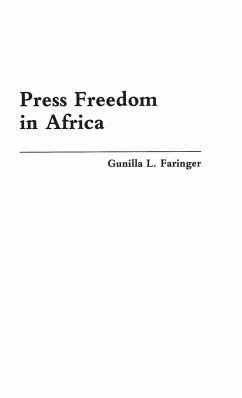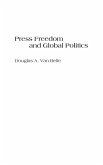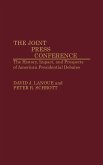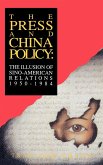The detailed introduction considers the philosophical issues that underlie the crucial role of mass media in political change and national development. Faringer surveys the unique obstacles confronting African nations as they have attempted to develop their own comprehensive media structures. Subsequent chapters trace the history of newspapers in Black Africa before World War II; survey the role of the press in the independence movement; and examine the changing relations between government and press. Two final chapters offer a critical perspective on press freedoms and functions and lay the groundwork for a more realistic concept of the press in the Third World. This resource should enjoy broad acceptance for courses in international journalism, African studies, Third World development, communications and mass media, government and politics of Africa, area studies, political science, political economy, and civil rights.
This is an authoritative study on the role of mass media in Third World development. Using broad historical, economic, and political perspectives, Gunilla L. Faringer details the obstacles to a genuinely free, mass circulation press in Black Africa and offers a thorough analysis of the African press. The volume's six chapters meticulously catalog all pertinent data on press development, performance, and goals in English-speaking, sub-Saharan Africa, with primary focus on Ghana, Nigeria, and Kenya, countries that represent three different courses of political development. Faringer critically analyzes widely held attitudes among scholars and international organizations as to the role of mass media in Third World development. Her findings challenge the prevalent belief that the primary task of Third World media is to function as a tool for economic development. Outlining both present and future responsibilities of Third World mass media, Press Freedom in Africa stresses the need for deeper understandings by mass media policy makers of the importance that history, macroeconomic structure, and political traditions hold in the Third World. The detailed introduction considers the philosophical issues that underlie the crucial role of mass media in political change and national development. Faringer surveys the unique obstacles confronting African nations as they have attempted to develop their own comprehensive media structures. Subsequent chapters trace the history of newspapers in Black Africa before World War II; survey the role of the press in the independence movement; and examine the changing relations between government and press. Two final chapters offer a critical perspective on press freedoms and functions and lay the groundwork for a more realistic concept of the press in the Third World. This up-to-the-minute resource will find broad acceptance for courses in international journalism, African studies, Third World development, communications and mass media, government and politics of Africa, area studies, political science, political economy, and civil rights.
Hinweis: Dieser Artikel kann nur an eine deutsche Lieferadresse ausgeliefert werden.
This is an authoritative study on the role of mass media in Third World development. Using broad historical, economic, and political perspectives, Gunilla L. Faringer details the obstacles to a genuinely free, mass circulation press in Black Africa and offers a thorough analysis of the African press. The volume's six chapters meticulously catalog all pertinent data on press development, performance, and goals in English-speaking, sub-Saharan Africa, with primary focus on Ghana, Nigeria, and Kenya, countries that represent three different courses of political development. Faringer critically analyzes widely held attitudes among scholars and international organizations as to the role of mass media in Third World development. Her findings challenge the prevalent belief that the primary task of Third World media is to function as a tool for economic development. Outlining both present and future responsibilities of Third World mass media, Press Freedom in Africa stresses the need for deeper understandings by mass media policy makers of the importance that history, macroeconomic structure, and political traditions hold in the Third World. The detailed introduction considers the philosophical issues that underlie the crucial role of mass media in political change and national development. Faringer surveys the unique obstacles confronting African nations as they have attempted to develop their own comprehensive media structures. Subsequent chapters trace the history of newspapers in Black Africa before World War II; survey the role of the press in the independence movement; and examine the changing relations between government and press. Two final chapters offer a critical perspective on press freedoms and functions and lay the groundwork for a more realistic concept of the press in the Third World. This up-to-the-minute resource will find broad acceptance for courses in international journalism, African studies, Third World development, communications and mass media, government and politics of Africa, area studies, political science, political economy, and civil rights.
Hinweis: Dieser Artikel kann nur an eine deutsche Lieferadresse ausgeliefert werden.








